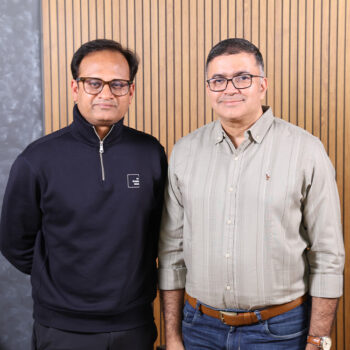This entry was posted
on Wednesday, July 17th, 2019 at 11:18:13 am and is filed under Wedding Charity and Registry, Wedding Planning.
You can follow any responses to this entry through the RSS 2.0 feed.
Both comments and pings are currently closed.
Here’s how you can make a difference with wedding food donations
Wedding Charity and Registry, Wedding Planning - Jul 17, 2019
Food is one of the most crucial aspects of an Indian wedding. Picking the menus for the assorted functions, pre-tasting the different dishes, plating sit-down dinners and adding fun live food stations – there’s so much that goes into wedding food! While the logistics invariably fall into place, leftover food at weddings is a common issue and the challenge lies in ensuring it does not go to waste.

However, with the rise in awareness and a growing commitment to give back to society, India has seen a surge in the number of NGOs that facilitate the channeling of surplus food from events to the needy.
One such organization is Feeding India which was established in 2014. It has served over 25 million meals across 82 cities in India with help from their network of more than 21,500 volunteers.

Ankit Kawatra, founder of Feeding India, shares some insights into this issue, “A wedding is an occasion of great significance in our country, and more often than not, includes lavish spreads of food owing to Indian hospitality’s deep connection with food. Our country sees about 2.5 crore weddings each year and anywhere between 15-40% of the food served there goes to the bins. While this amount of wastage appalling in itself, it gets more abysmal when we juxtapose these figures against the number of Indians who sleep hungry each night, which is estimated to be 20 crores.”
Upon partnering with Feeding India, donors are requested to donate the cost of a single plate at their wedding. With this money, the team takes care of the collection, transportation, quality, and distribution of the leftover food.
Apart from Feeding India, there are several other organizations that are dedicated to the solving of this problem such as The Robin Hood Army (New Delhi), Roti Bank by Dabbawalas (Mumbai), Mera Parivar Food Bank (Haryana), Annakshetra Foundation Trust (Jaipur), Shelter Don Bosco (Mumbai), Santhimandiram (Kerala), No Food Waste (Coimbatore), and No Hungry Child (Bengaluru).

Here is a guide for couples who want to explore the option of donating food that is leftover after a function and is still safe to consume.
Speak to Your Caterers
Some wedding caterers are working towards resolving the issue of food wastage by either tying up with an NGO or setting up internal practices to help the cause. Ashay Desai, General manager of Blue Sea Catering, a unit of Catering Collective, says, “Since our events are usually large in scale, we hire many underprivileged workers as our support staff. Providing financial aid is one aspect of our decision; the other is to ensure that they are also fed. Most laborers want to save enough money for their families, and at the end of a hard day, we help them do so by giving them the excess food so that they and their families are well fed. We believe in the concept that charity begins at home.”
Reach Out to an NGO
In case your caterers do not redirect surplus food to the needy, couples can research NGOs working towards this cause and pick one which resonates with them. Ankit explains, “Couples must notify us by filling the form on our website at least a week prior to their wedding. This time span allows us to plan the logistics and align the teams effectively. They can also reach out to us when they book the venue.”
Check for Provisions
Once the wedding is over, ensuring that the food reaches those who need it is a process which entails packaging and transportation. There may be times when the NGO you work with expects you to have the food pre-packed when their team arrives or needs you to have it dropped to a picking point. Be sure to check which aspects they will take care of. Ankit says, “Our teams bring along sets of airtight containers to the event venue to store the food. Once packed, we take it to nearby shelters in our vans which are equipped with insulin boxes that have gel pads.”
Be Vigilant
While donating your wedding food is a great cause, it comes with responsibility in order to ensure that all of it reaches the needy in the right condition. Sharing a few factors to keep in mind, Ankit advises, “When giving away edibles donors must ensure that the food they are offering is safe to consume. Another thing to remember is to maintain the temperature of food at the time of handing it over to us.”







